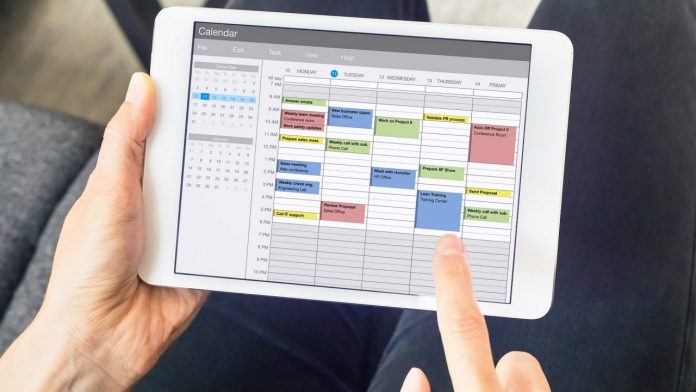IT doesn’t matter what industry you’re in. Whether you work for a SaaS company from the comfort of your own home office, or you wait tables in a crowded downtown diner, there’s one thing 83 percent of all employees deal with on a daily basis: stress.
That’s right, work-related stress affects more than four out of five employees, and yet it’s something that rarely gets dealt with or discussed. And with just five percent of organizations taking it seriously enough to develop a formal plan for combating employee stress, it’s up to you to deal with it in your own life.
The Danger of Chronic Work-Related Stress

Chronic work-related stress isn’t just frustrating – it’s damaging to your health. Some of the potential side effects include:
- Suppressed energy levels and feelings of lethargy
- High blood pressure and rapid heart rate
- Poor eating habits
- Frequent sickness and illness
- Hair loss
- Increased risk for musculoskeletal disorders
- Increased risk for diabetes
- Higher risk for irritable bowel syndrome and other gastrointestinal disorders
- Inability to focus and/or mental confusion
Chronic stress is a serious issue. And though it doesn’t get discussed as much as it should, it’s imperative that you do something about it. Thankfully, there are a number of steps you can take to address the work-related stress in your life.
How to Give Work Stress the Boot

We all have our own unique personalities, challenges, strengths, weaknesses, and triggers. Keeping these driving factors in mind, here are some useful tips you can use to smolder stress.
1. Make a List
Start by making a list of all the things that are stressing you out at work. This should include both small and large tasks. Then go through and group them into categories: major stress, moderate stress, minor stress.
Anything that falls into the “major stress” category should be addressed right away. Anything in the “moderate stress” category comes next. Don’t get too bogged down with “minor stress” issues. These are typically the last priority and will likely get sorted out in the process of dealing with the other issues.
2. Control What You Can Control
It’s important to understand the difference between stress factors you can control and stress factors you can’t control. If too much of your focus is on the latter, it’ll only heighten your sense of overwhelm. Instead, use your energy to address the former.
3. Let it be Known
When we find something overwhelming, we have this natural tendency to assume others around us know it’s stressing us out. But in reality, nobody – your boss included – is a mind-reader. And unless you tell them, they won’t be able to help.
Take your one or two biggest stress factors and schedule a time to discuss them with your immediate superiors. Let them know how much stress these issues are causing and brainstorm possible solutions together. (You’d be surprised to learn how much your employer is willing to help you confront stress. After all, they want you to be as productive and healthy as possible, so that you can provide maximum value in return.)
4. Find Healthy Outlets
If you’re working 15-hour days, driving home, eating dinner, and falling asleep, that’s not healthy. You need some separation and balance in life. Healthy outlets outside of work can give you a way of blowing off stress and recharging your mind and body. Here are some ideas:
- Join a running club and start your day off with a three- or four-mile run.
- Click here to buy a handgun. Then visit a local shooting range to increase your mental focus and precision.
- Start woodworking as a hobby and learn how to make things with your hands.
There are thousands of different outlets you can use to relax and unwind. Choose one that fits your interests and use it as a way to get your mind off work.
5. Start Your Day Off Right

When was the last time you showed up to work with a settled mind? In other words, when was the last time you walked into work with a clear head, no distractions, and the confidence to tackle the day? For most people, the answer is never. And the reason why is quite simple: busyness and chaos.
How you start your day matters. If you slap the snooze button half a dozen times, rush to get the kids to school, then blitz through traffic while trying not to spill a hot cup of coffee, before ultimately showing up to work 10 minutes late and strategically trying to walk past your boss’ office without anyone noticing…well, of course you’re going to be stressed!
Now imagine if you woke up early, ate a healthy breakfast, got the kids to school on time, arrived at the office 15 minutes early, and gave yourself time to settle into your office before anyone else arrived. How much of a difference would that make?
Starting your day off right can do wonders for your mind and body. And while it might not change any of the tasks on your daily to-do list, it gives you a more positive approach.
6. Simplify Your Personal Calendar

One of the reasons you feel stressed all the time is that your calendar has too much on it. You say yes to everything, which leaves you little-to-no free time for yourself.
The only way to combat this issue is to simplify your calendar and start saying no to things that aren’t a priority in your life. It’ll feel uncomfortable at first, but once you make a habit out of saying this simple two-letter word, you’ll start to notice your schedule free up in a major way. And rather than feeling the constant pressure of having to show up for the next “thing,” you’re free to relax and move at your own pace.
Reclaim Control Over Your Life
Why shouldn’t you be able to spend less time worrying and more time focusing on the good things that are happening in your life? Well, with a little intentional planning, you can. It all starts with addressing the underlying issues and then replacing these factors with positive habits and circumstances that promote positive well-being.









